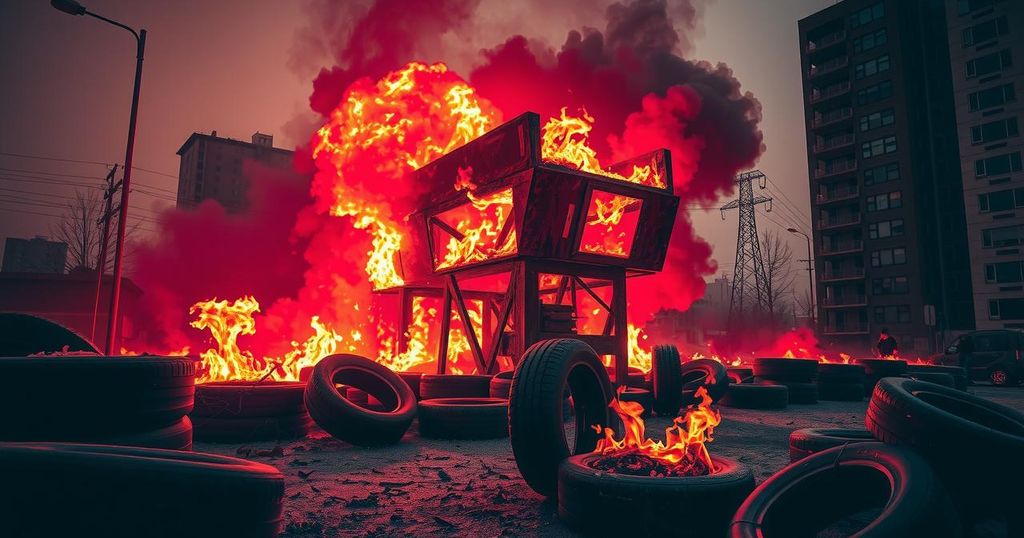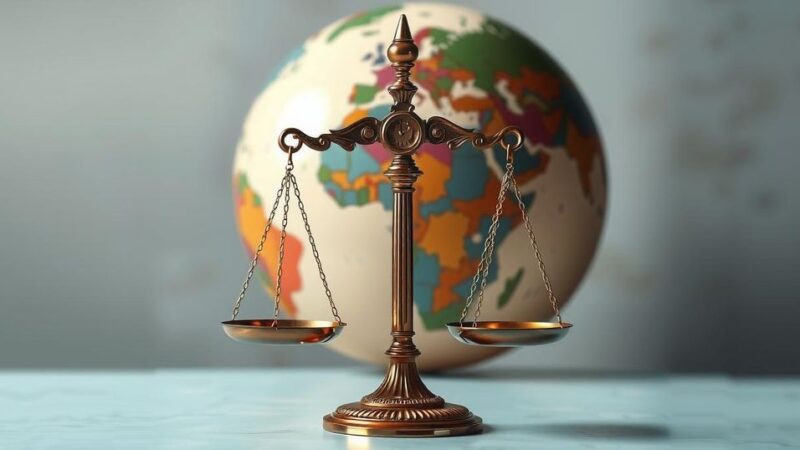Protests in the Democratic Republic of the Congo turned violent, leading to the U.S. Embassy in Kinshasa being set ablaze. The unrest was fueled by discontent over the government’s actions and the involvement of Rwanda-backed M23 rebels in the region. Other embassies faced similar threats, while Goma remains a focal point of conflict, with significant implications for local residents and international relations.
The U.S. Embassy in the Democratic Republic of the Congo is reportedly ablaze, following protests that escalated into violence. Unverified footage has surfaced, showcasing flames emanating from the diplomatic mission in Kinshasa, invoking public outcry regarding the situation. The protests were initially sparked by discontent with the government and alleged Rwandan support for the M23 rebel group, escalating tensions in the region, particularly in Goma, where significant fighting has occurred.
The embassy had previously announced plans to close due to anticipated protests, advising U.S. citizens in the Congo to maintain a low profile and limit movements amid heightened police presence. A statement from the embassy emphasized the cancellations of consular appointments and the potential for disturbances to impact daily life.
Other foreign embassies, notably those from European nations, have also reportedly faced violence, including instances of looting and arson. Congo’s security forces are currently engaged in confrontations with M23 rebels, who have advanced into strategic areas, leading to mass displacements and escalating fears among residents.
Gunfire and explosions continue to reverberate in Goma, with reports of casualties amongst local residents and peacekeepers. The escalating conflict is part of a larger, protracted struggle for control over mineral-rich areas, with multiple armed factions operating amid ongoing ethnic tensions. The Congolese leadership plans to address the nation regarding the situation, amidst calls for action in response to growing unrest.
The situation in the Democratic Republic of the Congo remains volatile due to long-standing conflicts involving various rebel groups, notably the M23. This armed group has rekindled tensions in the eastern part of the nation following a resurgence attributed to alleged support from Rwanda. The unrest has prompted widespread protests against the government, reflecting public frustration over perceived governmental inefficiencies and external influences exacerbating the conflict.
The protests against the U.S. Embassy and broader unrest in the Democratic Republic of the Congo highlight the ongoing struggles faced by the region amid entrenched conflicts. The situation reflects deep-rooted frustrations with the government and raises concerns about the impact on embassies and citizens. As violence escalates, the international community watches closely, particularly with regard to the humanitarian crisis affecting millions.
Original Source: www.newsbreak.com







